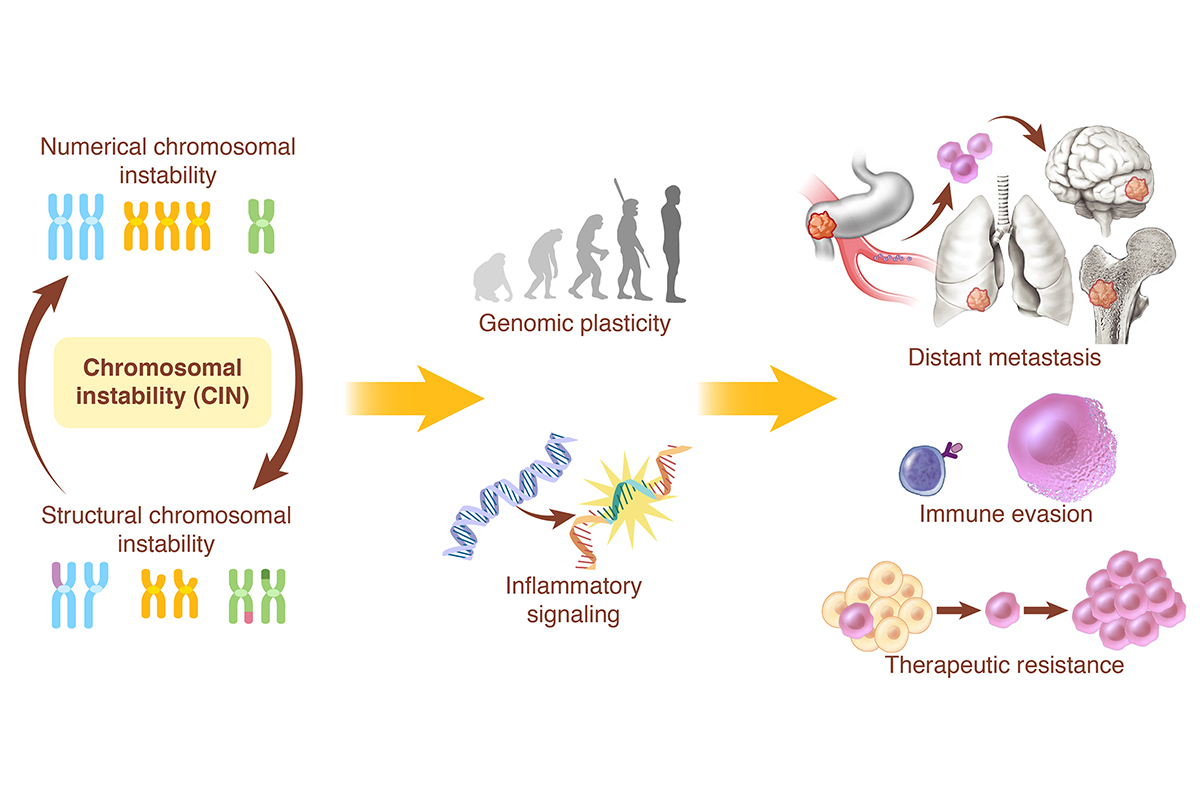The Bakhoum lab focuses on understanding the role of chromosomal instability (CIN) in tumor evolution. CIN is a hallmark of human cancer and it is associated with poor prognosis, metastasis, and therapeutic resistance. It results from errors in chromosome segregation during mitosis, leading to structural and numerical chromosomal abnormalities. In addition to generating genomic heterogeneity that acts as a substrate for natural selection, CIN promotes inflammatory signaling by introducing genomic double-stranded DNA into the cytosol, engaging cytosolic DNA-sensing antiviral innate immune pathways. These multipronged effects distinguish CIN as a central driver of tumor evolution and as a genomic source for the crosstalk between the tumor and its microenvironment.

Chromosomal instability (CIN) is a major driver of tumor evolution and it is central to processes such as metastasis, drug resistance, and immune evasion. The relationship between CIN and cancer is complex. To better understand how CIN influences tumor evolution, we aim to deconstruct the individual cellular and microenvironmental phenotypes imparted by chromosome segregation errors. These phenotypes include genomic copy number heterogeneity as well as inflammatory signaling, both of which can have distinct phenotypes on the tumor and its microenvironment. By understanding these basic processes, we aim to develop CIN-directed therapeutic strategies for the treatment of advanced cancers.